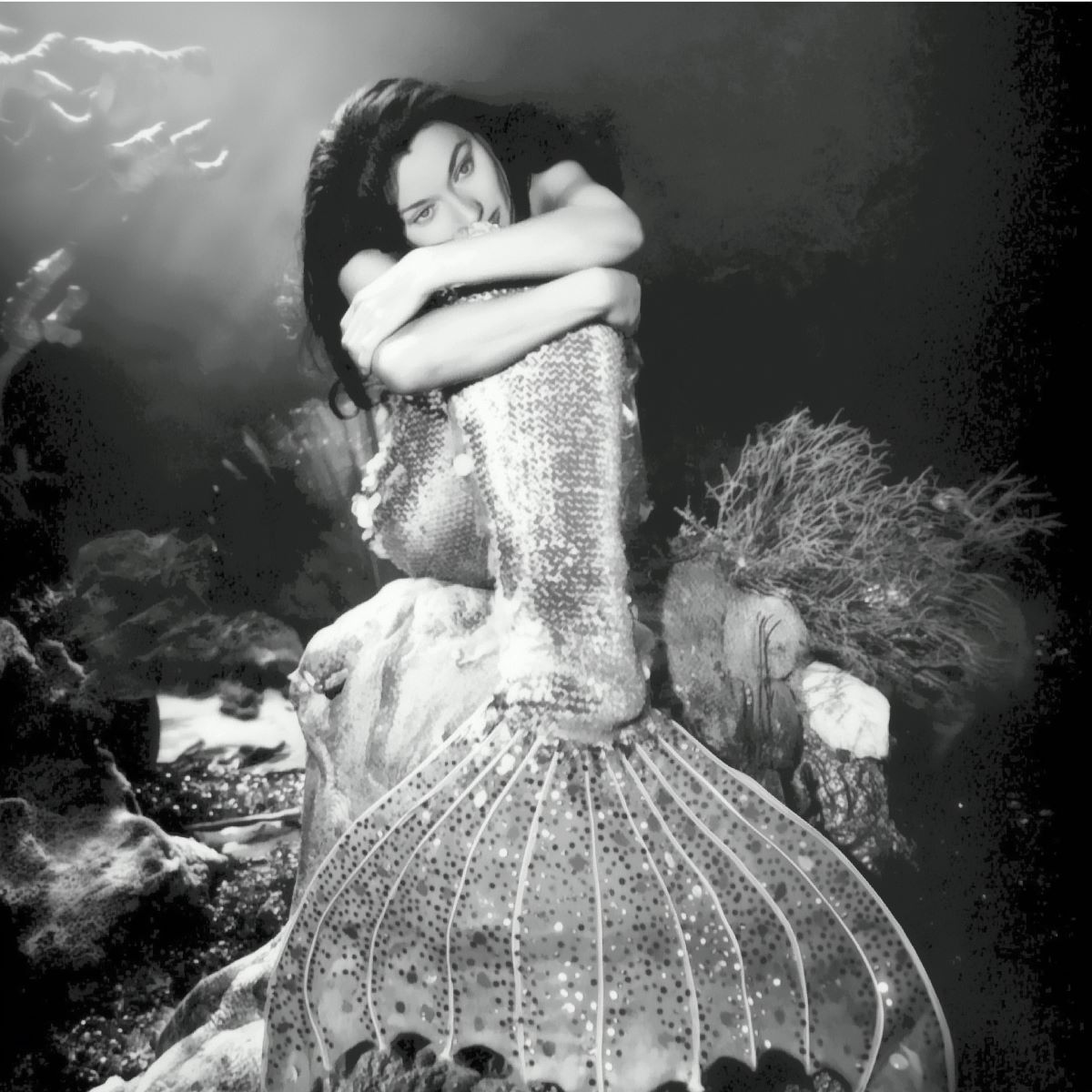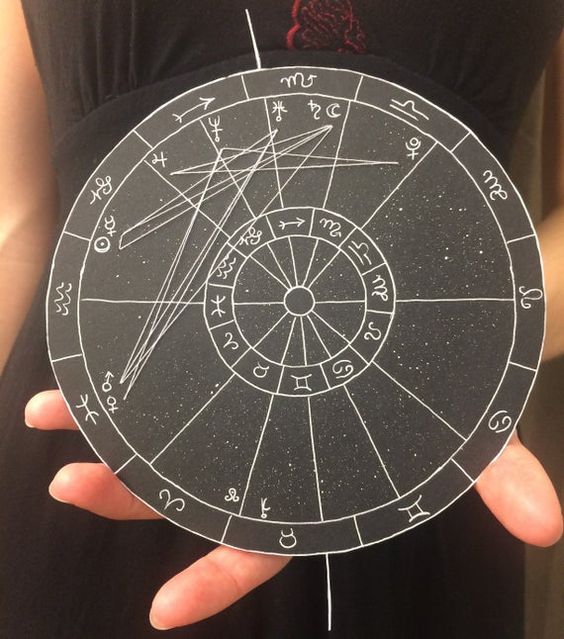
Astro-Cinematics: Bridging Worlds Through Film and Astrology
 “Possession,” starring Sarah Michelle Gellar, delves into a Plutonian theme, utilizing the astrological symbolism associated with the planet Pluto to explore intense psychological dynamics. The movie explores the enigmatic realm of Pluto, characterized by its complex array of motives, emotions, and transformational energies. The correlation between the Mercury-Pluto aspect and the two brothers in the story adds depth to the narrative. Mercury, associated with communication and intellect, aligns with the notion of hidden agendas and mind games. In astrology, Pluto is often linked to the element of water, which symbolizes emotions, depth, and profound transformations. This watery nature of Pluto reflects its motives, which are not always straightforward and often lie beneath the surface. However, there are also fiery undertones to Pluto, indicating its powerful and intense energy that can bring about profound changes.
“Possession,” starring Sarah Michelle Gellar, delves into a Plutonian theme, utilizing the astrological symbolism associated with the planet Pluto to explore intense psychological dynamics. The movie explores the enigmatic realm of Pluto, characterized by its complex array of motives, emotions, and transformational energies. The correlation between the Mercury-Pluto aspect and the two brothers in the story adds depth to the narrative. Mercury, associated with communication and intellect, aligns with the notion of hidden agendas and mind games. In astrology, Pluto is often linked to the element of water, which symbolizes emotions, depth, and profound transformations. This watery nature of Pluto reflects its motives, which are not always straightforward and often lie beneath the surface. However, there are also fiery undertones to Pluto, indicating its powerful and intense energy that can bring about profound changes.
Living with Pluto’s influence demands a willingness to engage with life at its fullest intensity. Just as Pluto’s energy is likened to a possession, it implies a complete mobilization of life’s energies, urging individuals to confront their deepest fears and desires. Pluto’s energy is likened to a form of possession due to its capacity to mobilize all aspects of life. Allowing Pluto to “possess” while retaining ego control implies a balance between surrendering to transformation and maintaining self-awareness. Being transformed by Pluto’s energy carries echoes of the mythical phoenix rising from the ashes. Embracing the transformative power of Pluto requires shedding old layers of the self, facing fears, and embracing profound change. The fear of powerlessness associated with Pluto’s influence reflects the apprehension that comes with the prospect of radical transformation. Letting go of this fear is a challenging endeavor, as it involves relinquishing control and allowing the inherent forces of change to take hold.
In essence, the concept of embracing Pluto’s possession without becoming entirely possessed captures the essence of engaging with its energies. It’s a reminder that transformation requires a certain level of surrender, yet maintaining a degree of self-awareness and autonomy remains crucial. The portrayal of this idea as akin to a “demonic takeover” may symbolize the intensity and depth of the changes Pluto can catalyze. However, the underlying message is likely one of personal evolution and growth through the profound shifts that Pluto can initiate.
 The movie “Win a Date with Tad Hamilton” skillfully weaves a Venus-Neptune feel throughout its narrative, exploring themes of fantasy, idolization, and romantic ideals. This astrological aspect, symbolizing the merging of Venus’s love and beauty with Neptune’s illusion and fantasy, serves as a backdrop for the central love triangle and the characters’ emotional journeys.
The movie “Win a Date with Tad Hamilton” skillfully weaves a Venus-Neptune feel throughout its narrative, exploring themes of fantasy, idolization, and romantic ideals. This astrological aspect, symbolizing the merging of Venus’s love and beauty with Neptune’s illusion and fantasy, serves as a backdrop for the central love triangle and the characters’ emotional journeys.
In the film, the presence of a fantasy figure akin to Neptune’s influence is palpable. Tad Hamilton, the superstar, embodies the unrealistic projections that often accompany idolization. Through magazines, television shows, and the silver screen, he becomes a larger-than-life figure, a fantasy man who captures the imagination of countless fans. This portrayal mirrors Neptune’s influence of creating illusions and blurring the lines between reality and imagination.
The heart of the story centers on a young woman who wins a date with this fantasy idol. This scenario sets the stage for a classic love triangle involving her male best friend, who has always harbored feelings for her. Here, the tension between the fantasy and the reality of relationships unfolds. The choice between the movie star and the familiar best friend embodies the conflict between romanticized ideals and the genuine connections that have developed over time.
The Venus-Neptune aspect resonates with the notion of intense idolization, a concept that can be seen in the behaviors of fans who are utterly devoted to celebrities. This aspect might be present in the charts of individuals who represent the archetype of fervent admirers or those who exhibit overt hysteria.
Fans who exhibit unwavering devotion to pop stars, groups, or actors often experience a deep emotional connection. Venus-Neptune’s energy can evoke a sensation of being in love, albeit with an idealized version of the person. This projection of romantic ideals onto a distant figure can lead to disillusionment when the reality falls short of the imagined perfection. This aligns with the astrological symbolism of Venus-Neptune, which signifies unfulfilled fantasies and the promise of ideal love that might not fully materialize.
The idea that these fans need to see behind the mirage suggests a transformation from idealized projections to a more realistic understanding of the person behind the celebrity façade. Just as a priest’s devotion to their religion might eventually evolve from idealized faith to a deeper, more nuanced understanding, fans with Venus-Neptune aspects could potentially progress from idolizing an image to appreciating the human complexities of their admired figure.

The movie “Here on Earth” aptly captures the essence of a Uranus-Pluto dynamic, characterized by sudden turns of events and Pluto’s fatalistic twists. This astrological aspect symbolizes radical transformation, unexpected crisis, and upheaval. The film’s portrayal of such dynamics reflects the powerful influence of these planets on human experiences. Pluto’s reputation as the most feared planet in astrology stems from its association with profound change, including endings that catch us off guard. The movie’s narrative aligns with this concept, where characters are confronted with unforeseen events that challenge their lives and relationships. Pluto’s role as a harbinger of unprepared farewells resonates with the universal fear of losing loved ones. The feeling of betrayal by life, when happiness is abruptly torn away, echoes the unpredictable and transformative nature of Pluto’s energies.
The film underscores the fragile nature of human happiness and the importance of not taking our blessings for granted—a core lesson of Pluto. The planet’s archetype teaches that embracing the impermanence of life can lead to a deeper appreciation of the moments we have, even if they are fleeting. The Uranus-Pluto cycle, which governs radical transformation and sudden upheaval, has profound implications on both a global and personal scale. The film’s portrayal of unexpected twists and rapid evolution mirrors the themes associated with this cycle. On a larger stage, the Uranus-Pluto conjunction of the 1960s, followed by subsequent squares, brought significant social upheaval and change.
On a personal level, the film’s characters experience rapid and extreme shifts in their lives, reflecting the intensity of Uranus-Pluto dynamics. Just as the planets symbolize sudden changes and crises on a larger scale, they also catalyze transformative events in individual lives, pushing them to evolve and adapt at a remarkable pace.
In summary, “Here on Earth” captures the essence of the Uranus-Pluto dynamic by portraying sudden turns of events, unexpected crises, and the transformative power of Pluto. The film mirrors the astrological archetypes by highlighting the fragility of happiness, the inevitability of change, and the need to appreciate each moment. Whether on a personal or global scale, the Uranus-Pluto influence drives rapid evolution, forcing individuals and societies alike to confront the unexpected and navigate the challenges of radical transformation.

“August Rush” is a film that beautifully encapsulates the Neptunian qualities of longing, inspiration, and magic. Neptune’s influence pervades the narrative, giving the story a dreamlike quality that resonates with themes of music, family, and the power of creative imagination. The protagonist’s deep connection to his musical background, even when separated from his parents, exemplifies the Neptunian concept of psychic sensitivity and the ability to tap into the ethereal realm of inspiration. The belief that music holds the key to reuniting his family emphasizes Neptune’s role as a bridge between the material and the spiritual, suggesting that the realm of art and imagination can serve as a catalyst for powerful and transformative connections.
The sense of longing that permeates the film reflects Neptune’s influence as the planet of yearning and idealization. The idea that music can transport individuals beyond themselves aligns with the Neptunian concept of escapism through art, offering a way to transcend the mundane and touch the sublime. This longing is mirrored in the protagonist’s journey to find his family, and the film captures the emotional intensity of his quest. Astrologers often associate music with Neptune due to its transcendent and emotionally evocative nature. The film’s focus on music as a unifying force speaks to the Neptunian idea of connecting to something greater than oneself through artistic expression. The notion that music is the highest of Neptunian arts resonates with the planet’s association with the divine and the spiritual realm.
Neptune’s role as the planet of creative imagination is evident throughout the movie’s almost unreal, enchanted atmosphere. The magical elements and the way the story unfolds contribute to a sense of wonder and mystery, reflecting the Neptunian archetype. The film’s ability to grip and engage the audience, while maintaining an otherworldly quality, speaks to Neptune’s power to captivate through art and storytelling.
In summary, “August Rush” is a testament to the Neptunian themes of longing, inspiration, and magic. The film’s portrayal of a young boy’s journey to reunite with his family through music exemplifies Neptune’s psychic sensitivity, creative imagination, and its ability to connect us to something greater. The story’s ethereal atmosphere, emphasis on art’s transformative power, and the sense of wonder it evokes all contribute to a cinematic experience that embodies the essence of Neptune.



















 Mars in Aquarius: Sex drive
Mars in Aquarius: Sex drive
 Sun Square Pluto Natal Aspect: I Am Titanium
Sun Square Pluto Natal Aspect: I Am Titanium
 Moon in the 8th House: At Home in the Underworld
Moon in the 8th House: At Home in the Underworld
 Pluto Transits Moon: A Time to Grieve
Pluto Transits Moon: A Time to Grieve
 Moon Conjunct Mars Natal Aspect
Moon Conjunct Mars Natal Aspect
 Uranus Transits: 1st House: Winds of Change:
Uranus Transits: 1st House: Winds of Change:
 Neptune in the 4th House
Neptune in the 4th House
 Saturn in the 1st House: From Self-Doubt to Lasting Identity
Saturn in the 1st House: From Self-Doubt to Lasting Identity
 Mercury Square Saturn: Heavy Thoughts
Mercury Square Saturn: Heavy Thoughts
 Moon in the 12th House: Drowning in Feelings (and Possibly Past Lives)
Moon in the 12th House: Drowning in Feelings (and Possibly Past Lives)
 Astrology Degrees and Meaning
Astrology Degrees and Meaning
 Composite Moon in 8th House
Composite Moon in 8th House
 T-Squares
T-Squares
 Love’s Mirage: The Sun- Neptune Synastry Influence
Love’s Mirage: The Sun- Neptune Synastry Influence
 Venus Opposite Uranus: Free to Love as You See Fit
Venus Opposite Uranus: Free to Love as You See Fit
 Is Pluto in Your 1st House? These 21 Things Might Just Confirm It
Is Pluto in Your 1st House? These 21 Things Might Just Confirm It
 Pluto Transits the 8th House: Major Life-Altering Undertakings
Pluto Transits the 8th House: Major Life-Altering Undertakings
 Venus-Pluto: The Magnificent Obsession
Venus-Pluto: The Magnificent Obsession
 Venus in the 12th House: Love Lost and Found
Venus in the 12th House: Love Lost and Found
 Moon in the 8th House: Incredible Insight
Moon in the 8th House: Incredible Insight